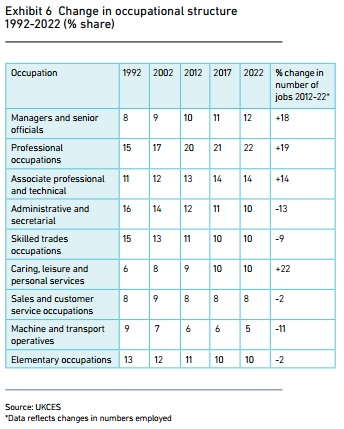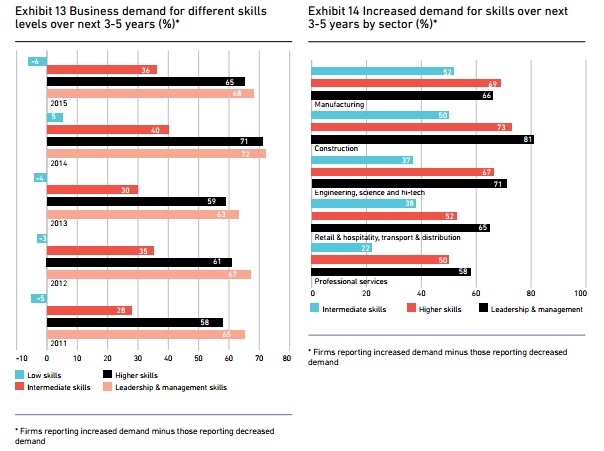More than half of employers fear they will not be able to recruit enough high-skilled workers, including the technology and digital sector, according to a new survey by the CBI.
The survey shows demand for highly skilled workers is particularly strong in high-growth, high-value sectors with the most potential – including technology.
This year’s CBI/Pearson Education and Skills survey indicates that more than half of firms fear growth will be held back by skills shortages.
The survey of 310 companies, which together employ over one million people, underlines the skills challenge facing the UK. It reveals:
• 2 in 3 businesses (68%) expect their need for staff with higher level skills to grow in the years ahead, but more than half of those surveyed (55%) fear that they will not be able to access enough workers with the required skills
• Demand for highly skilled workers is particularly strong in sectors critical to the rebalancing of the economy – engineering, science and hi-tech (74%), construction (73%) and manufacturing (69%).

With an apprenticeship levy for larger employers set to be introduced following the Budget, the CBI is concerned that while it may fund more apprenticeships to meet the Government’s target of 3 million, it will not deliver the high-quality, business-relevant training needed, and do little to help small or medium sized businesses.
Of apprenticeships starts in 2013/14, just 2% were higher apprenticeships, which lead to qualifications at a level equivalent to higher education.
Katja Hall, CBI Deputy Director-General, said: “The Government has set out its stall to create a high-skilled economy, but firms are facing a skills emergency now, threatening to starve economic growth. Worryingly, it’s those high-growth, high-value sectors with the most potential which are the ones under most pressure. That includes construction, manufacturing, science, engineering and technology.
“Employers have a critical role in upskilling the workforce, but part of the deal must be for real business control of apprenticeships to meet their needs on the ground. The best way to plug the skills gaps and provide quality training is to speed up existing apprenticeships reforms already underway and encourage smaller firms to get involved.”
In the survey, 38% of respondents say matching qualifications better with business needs would get more companies involved in apprenticeships, as would putting more purchasing power in the hands of firms (34%).

John Watton, EMEA Marketing Director at Adobe said: “Technology is changing aspects of every job, and young people need to be equipped with digital skills for virtually every career path now. Marketing is one of the sectors which has been transformed by technology in recent years, and there is a shortage of tech-savvy professionals as a result. Employers need to prioritise training in new digital skills, with 30% of UK marketers surveyed for Adobe’s Digital Roadblock Report citing this as the biggest barrier to success.”
Adobe’s Digital Roadblock Report 2015 found that:
• Nearly half (48%) of UK marketers are worried about how they will adapt to changes in the industry, driven by technology
• Four in ten (40%) marketers feel they do not have the skills to perform their jobs successfully
• Technology-based marketing roles were cited as the most underrepresented and continue to be the top areas for hiring needs year over year – this includes Mobile Marketer (29%), Data Analyst (28%) and Digital Marketer roles (27%)
The CBI has set out a reform programme for schools in the UK througha First Steps campaign to help focus beyond academic ability alone. When employers recruit school and college leavers, this shines through.
Attitudes/character (85%) ranks well ahead of qualifications (39%) or academic results (31%) as the most important factors when recruiting. 39% are currently concerned by the attitudes of school and college leavers to work, with 61% not satisfied with self-management and resilience.
The CBI has called for a series of reforms to our school systems, including curriculum and Ofsted reform.
Rod Bristow, President of Pearson’s UK business, added: “It is overwhelmingly clear from the research that employers are looking for education, above all else, to be a better preparation for the workplace. Skills such as communication, team-working, grit and leadership must be nurtured throughout our education system in order to enable young people to enter the work place with confidence and to realise their ambitions in a modern economy.”

